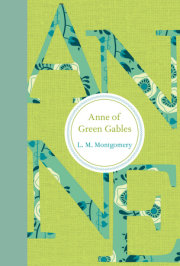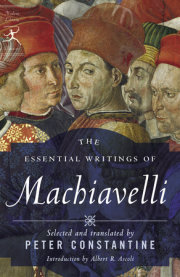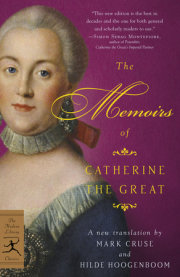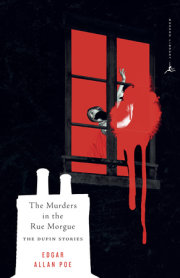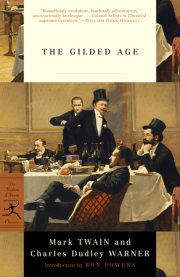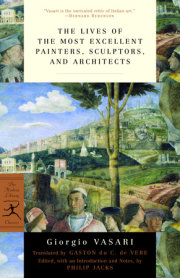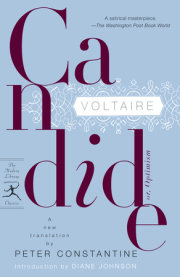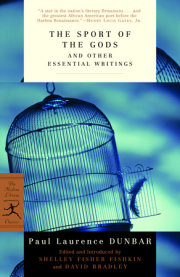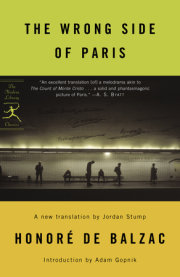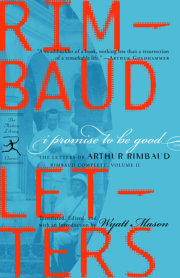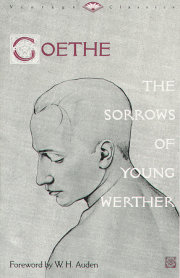May 4, 1771How glad I am to have come away! Dearest friend, what is the human heart! To leave you to whom I was so attached, from whom I was inseparable, and to be happy! I know you will forgive me. Did not fate seek out my other attachments just to trouble a heart like mine? Poor Leonore! And yet I was innocent. Could I help it that while I found her sister’s willful charms pleasantly diverting, a passion was forming in the poor girl’s heart? And yet—am I wholly innocent? Didn’t I nourish her feelings? Didn’t I make fun of those entirely genuine expressions of nature that so often made us laugh, as little to be laughed about as they were? Didn’t I— Oh, what is man, that he can grumble about himself! I will, dear friend, I promise you, change for the better, will no longer, as I have always done, chew on the cud of the little bit of unpleasantness that fate puts in our way; I will enjoy the present, and the past will be past for me. Of course you are right, my friend, people would have fewer pains if—God knows why they are made this way—their imaginations were not so busily engaged in recalling past trials rather than bearing an indifferent present.
Be so good as to tell my mother that I’m devoting myself wholeheartedly to her business and will send her news of it very soon. I have spoken to my aunt, and found that she is by no means the evil person we made her out to be at home. She is a cheerful, impetuous woman with an excellent heart. I explained to her my mother’s complaints about the part of the inheritance that has been withheld; she explained the reasons, causes, and the conditions under which she would be prepared to release it, and more than we were asking.—In short, I don’t want to write about it now; tell my mother that everything will turn out all right. And, dear friend, in this little transaction I have again discovered that misunderstandings and lethargy cause perhaps more confusion in the world than cunning and malice. At least, the last two are certainly more rare.
Otherwise I am quite happy here, the solitude in this paradisiacal region is a precious balm to my heart, and the youthful season in all its fullness warms my often shivering heart. Every tree, every hedge, is a bouquet of blossoms, and one would like to be a mayfly drifting about in the sea of heady aromas, able to find in it all one’s nourishment.
The town itself is unpleasant, but round about it an inexpressible natural beauty. This moved the late Count von M . . . to lay out his garden on one of the hills that intersect with the most appealing variety and form the loveliest valleys. The garden is simple, and you feel the moment you enter that its plan was not drawn up by some calculating gardener but by a feeling heart that sought its own enjoyment here. I have already wept many a tear for the deceased in the small, dilapidated summerhouse that was his favorite spot and is also mine. Soon I will be master of the garden: the gardener has taken a liking to me even in these few days, and he won’t be the worse off for it.
May 10
A wonderful cheerfulness has taken possession of my soul, like the sweet spring mornings I delight in with all my heart. I am alone and enjoying my life in this region, which is made for souls like mine. I am so happy, dear friend, so immersed in the feeling of quiet, calm existence, that my art suffers from it. I couldn’t draw now, not a line, but I have never been a greater painter than in these moments. When the dear valley mists around me and the high sun rests on the tops of the impenetrable darkness of my woods and only isolated rays steal into the inner sanctum as I lie in the high grass by the falling brook, and closer to the earth a thousand different blades of grass become astonishing to me; when I feel closer to my heart the teeming of the small world among the stems, the innumerable, unfathomable forms of the little worms, the tiny gnats, and feel the hovering presence of the Almighty who created us in His image, the breeze of the All-Loving One who hoveringly bears and preserves us in eternal bliss; my friend, when the world around me grows dim to my eyes, and world and sky rest entirely in my soul like the form of a beloved, then I often yearn and think: Oh, could you express this, could you breathe onto paper what lives in you so fully and warmly that it would become the mirror of your soul, as your soul is the mirror of infinite God!—My friend!—But it is destroying me, I am succumbing to the power of the gloriousness of these apparitions.
May 12
I don’t know whether deceiving spirits hover over this region or if it is the warm heavenly fantasy in my heart that makes everything around seem like paradise to me. Right outside the village is a well, a well to which I am spellbound like Melusine with her sisters.—You walk down a small hill and find yourself facing a vault from which some twenty steps go down to where the clearest water bubbles forth from marble rocks. The low wall above, which forms the surrounding enclosure, the high trees that shade the place all around, the coolness of the spot, it all has something enticing, something uncanny about it. Not a day passes without my sitting there for an hour. Girls come from the town and fetch water, the most harmless task and the most necessary, which in former times the daughters of kings would perform themselves. When I sit there the patriarchal idea comes so vividly to life around me, how they all, the elders, make acquaintance and court at the well, and how around the well and the springs benevolent spirits hover. Oh, whoever cannot feel that must never have refreshed himself in the well’s coolness after a strenuous walk on a summer day.
May 13
You ask whether you should send my books.—My friend, I beg you, for God’s sake, don’t bother me with them! I no longer want to be led on, cheered up, spurred on, my heart surges enough by itself; I need a lullaby, and that I have found in abundance in my Homer. How often do I lull my agitated blood to rest; for you have never seen anything so changeable, so restless as my heart. My friend, do I need to tell you that, you who have so often borne the burden of seeing me swing from grief to excess, and from sweet melancholy to ruinous passion? I treat my little heart like a sick child: whatever it wishes for is granted. Don’t spread this about; there are people who would hold it against me.
May 15
The ordinary people of the place already know and love me, especially the children. When at the beginning I first went to join them, asking them amiably about this and that, some thought I was trying to make fun of them and told me off quite rudely. I didn’t let it bother me, but felt most vividly something I have often noted: people of some standing will always remain at a chilly distance from the common people, as if they thought they would demean themselves by approaching them; and then there are flighty people and nasty jokers who seem to lower themselves in order to flaunt their own high spirits before the poor.
Of course I know that we are not all equal, nor can be; but I am of the opinion that he who thinks it necessary to distance himself from the so-called rabble in order to preserve respect is just as blameworthy as a coward who hides from his enemy because he fears defeat.
Recently I went to the well and found a young servant girl, who had placed her jug on the lowest step and was looking around for some friend to come help her lift it up onto her head. I climbed down and looked at her.—Shall I help you, my girl? I said.—She blushed all red.—Oh no, sir!—she said. With no fuss.—She arranged the ring on her head, and I helped her. She thanked me and climbed up.
May 17
I have made all sorts of acquaintances, company I have not found. I don’t know what it is about me that attracts people; so many like and attach themselves to me, and it pains me when our paths coincide for only a short stretch. If you ask what people are like here, I have to say: like everywhere! The human race is a monotonous thing. Most people work most of the time in order to live, and the little freedom they have left over frightens them so, that they will do anything to get rid of it. Oh, the regimentation of mankind!
But a quite good sort of people! When I sometimes forget myself, sometimes enjoy with them pleasures that people are still allowed, joking around a table with good company in frankness and good fellowship, taking a long walk, arranging a dance at the proper time, and such things, it has a quite favorable effect on me; but I must avoid thinking that so many other energies that I must carefully conceal still lie within me, all decaying unused. Oh, it so constricts the heart.—And yet, to be misunderstood is the fate of people like us.
Alas, that the friend of my youth is gone! Alas that I ever knew her!—I would say you are a fool, you seek what is not to be found here below; but I had her, I felt that heart, that great soul in whose presence I felt myself to be more than I was because I was everything I could be. Good God! Was there a single power of my soul unused? Could I not unfold before her all the miraculous feeling with which my heart embraces nature? Was not our relation an eternal weaving of the finest feelings, the sharpest sallies, whose variations even to mischievousness were all marked by the stamp of genius? And now!—Alas, the years she was ahead of me led her earlier to the grave. I will never forget her, never forget her steady mind and divine patience.
A few days ago I made the acquaintance of young V . . . , a frank youth with a pleasantly formed face. He has just come from academies, doesn’t think of himself as wise, but still believes he knows more than other people. He was also studious, as I gather from everything he said; in short, he knows a good deal. When he heard that I sketched a lot and knew Greek (two meteors in this region), he turned to me and displayed quite a bit of knowledge, from Batteaux to Wood, from de Piles to Winckelmann, and assured me that he had read Sulzer’s Theory, the first part, all the way through, and that he owned a manuscript of Heynen on the study of Greece and Rome. I left it at that.
Copyright © 2004 by Johann Wolfgang von Goethe. All rights reserved. No part of this excerpt may be reproduced or reprinted without permission in writing from the publisher.















